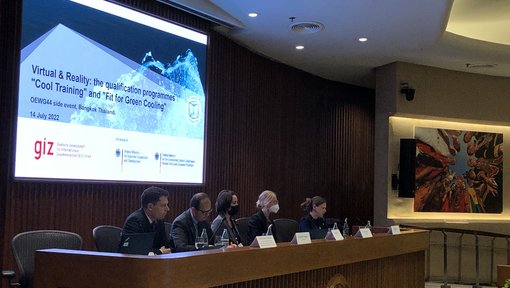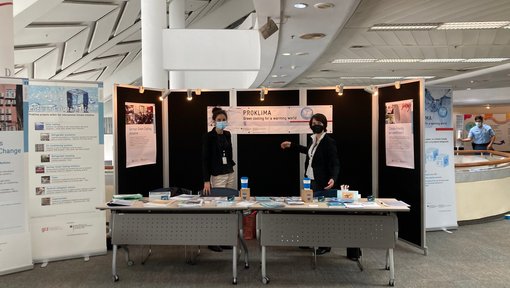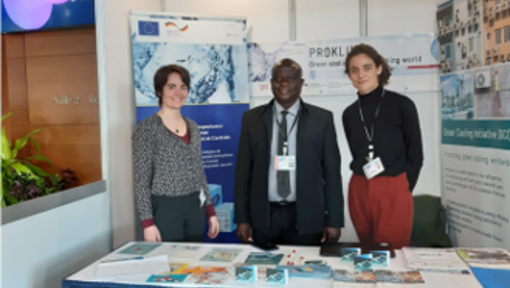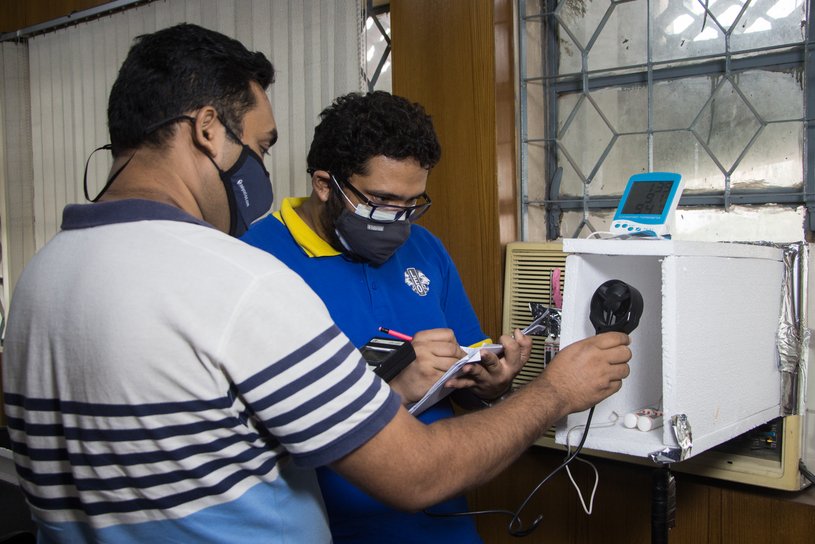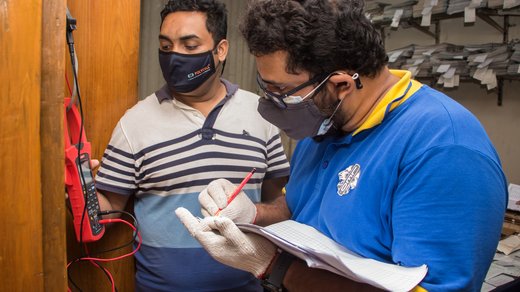This report identifies current technologies used in public buildings in Bangladesh and recommends alternative energy-efficient cooling and lighting technology best suited to the country. It also discusses the role of solar photovoltaic (PV) systems in reducing grid electricity use. Finally, the report lists companies providing such climate-friendly equipment, aiming to assist key actors in making an informed decision.
What is the background?
This publication was produced as part of the activities of Proklima, a pro-gramme within the Deutsche Gesellschaft für Internationale Zusammenarbeit (GIZ), funded by the German Federal Ministry for Economic Cooperation and Development (BMZ). As per the request of the Sustainable and Renewable Energy Development Authority (SREDA), GIZ has received a grant from the Kigali Cooling Efficiency Program (K-CEP) to implement a pilot project on Energy Efficiency in Pub-lic Buildings in Bangladesh (EEPB). Under the pilot project, energy audits has been conducted in se-lected public buildings across Bangladesh.
In what broader context did EEPB originate?
The maintenance of buildings requires a high amount of energy. It is no surprise then that, in public discourse, buildings are acknowledged as major sources of greenhouse gas (GHG) emissions. But one particular aspect is often forgotten: cooling. It is essential for residential, commercial and public sectors alike – even more so in countries located in subtropical climate zones such as Bangladesh. The building sector in Bangladesh represents about 35% of the total electricity consumption. With rising temperatures, better standards of living and a growing pop-ulation, the demand for cooling is ever-increasing. Unsustainable synthetic solutions would not only further accelerate climate change in a country already heavily affected by its adverse impacts; it would also be costly. To single out best available energy-efficient technologies is therefore essential. Among others, this assessment thus highlights synergies between the building sector and the Refrig-eration and Air Conditioning (RAC) sector.
What is this report used for?
The results will be shared with wider stakeholders. The idea is twofold: to complement the recommendations from the energy audits; and to determine the cost-benefits of promoting nation-wide energy efficiency in public building projects in Bangladesh. Successful imple-mentation of the pilot project could ultimately help grow the energy-efficient appliance market in Bangladesh and garner interest from private sector actors in launching cooling and PV solar projects in residential, commercial and industrial buildings.

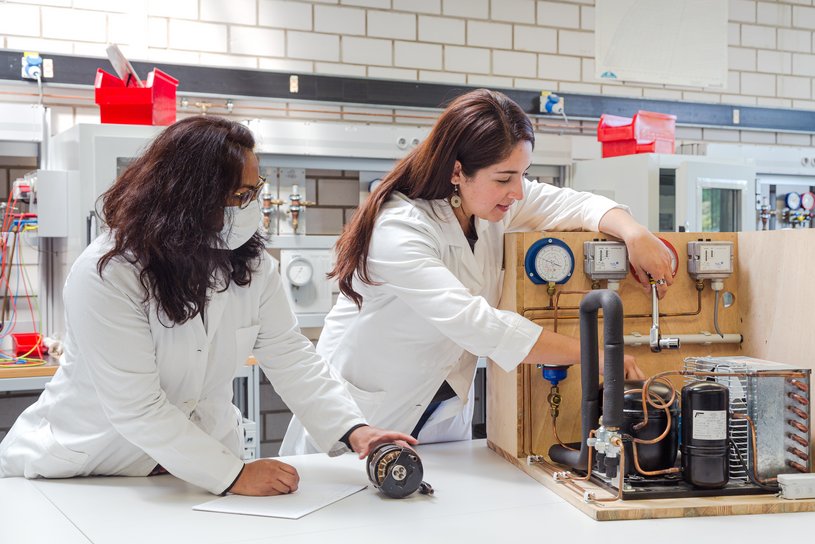 Image: giz / Andreas Döring
Image: giz / Andreas Döring